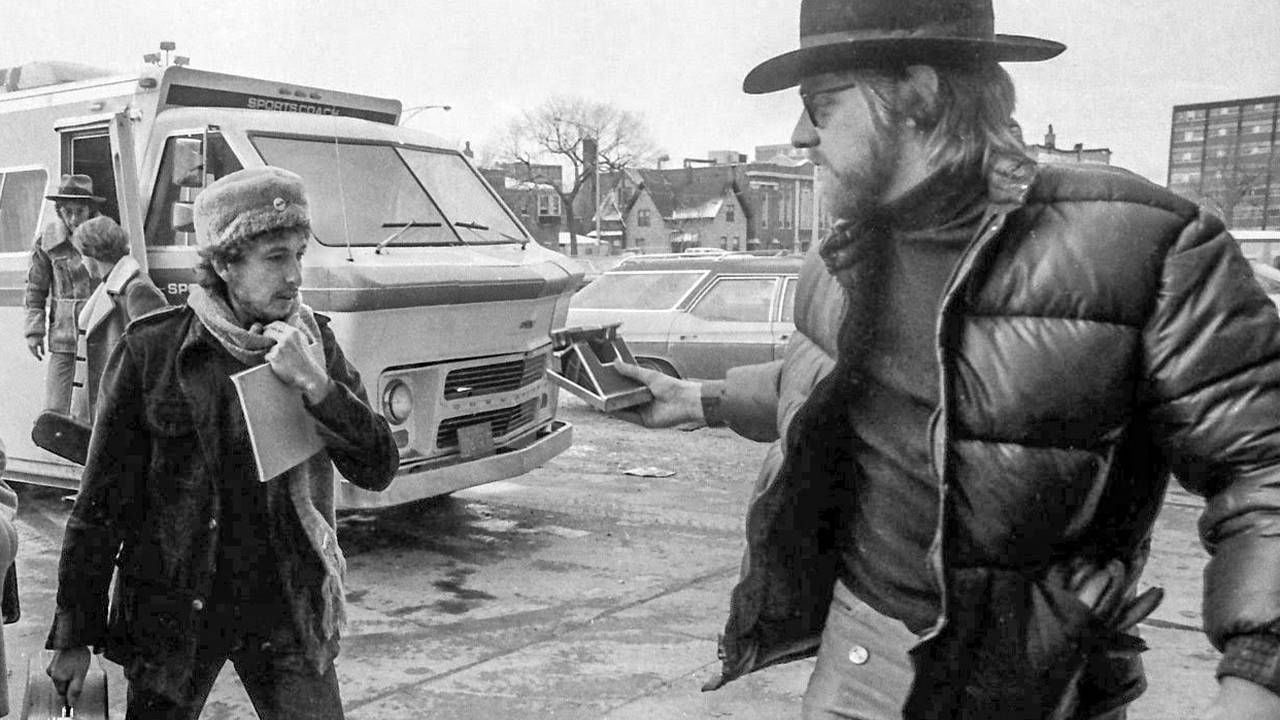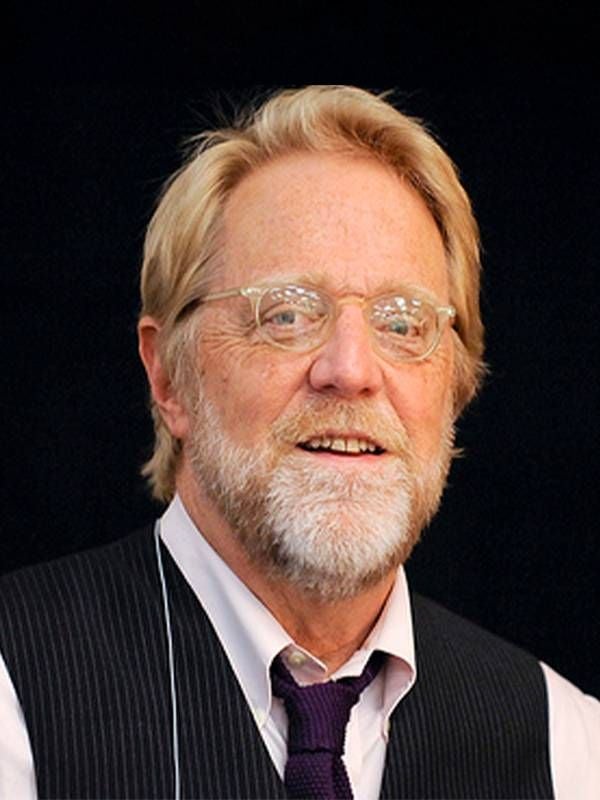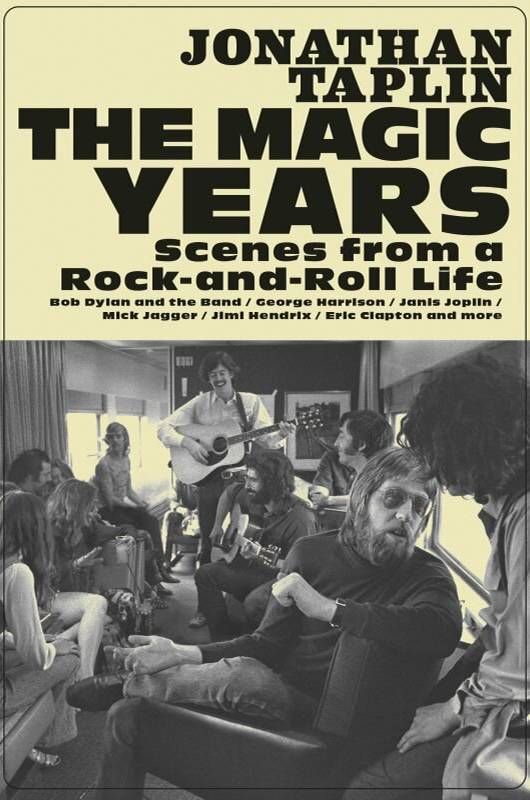Meet the Master of Reinvention
'The Magic Years' author Jonathan Taplin: From Dylan roadie to Wall Street exec to Innovation Lab chief
John Lennon once sang, "Life is what happens to you while you're busy making other plans." Jonathan Taplin, author of the new memoir "The Magic Years: Scenes From a Rock-and-Roll Life," personifies those words.

"I've had six different careers," Taplin, 73, told me.
"I was tired of getting the 2 am phone call that someone had run their car into a tree."
This real-life Zelig began his journey the summer before freshman year at Princeton University when he was standing backstage at the 1965 Newport Folk Festival (on the weekend when Dylan famously "went electric") and met Albert Grossman, Dylan's manager. Seduced by rock and roll, Taplin decided not to follow his lawyer father's preordained path for him: Harvard Law School.
Working With Dylan and Scorcese
Instead, this master of reinvention began his career as a roadie with Bob Dylan and The Band on their 1969 Isle of Wight concert for 200,000 fans in England and again when Dylan and The Band embarked on Tour '74 in 1974, Dylan's first tour in eight years. Taplin also helped George Harrison organize the landmark Concert for Bangladesh in 1971.
In his first attempt producing movies, Taplin raised $500,000 for then-unknown director Martin Scorsese's breakthrough film, 1973's "Mean Streets." He went on to produce Scorsese's acclaimed "The Last Waltz" as well as "Under Fire" and "To Die For," on his own.
In 1984, Taplin, with investors Richard Rainwater and the Bass Brothers, helped the Walt Disney Co. stave off a corporate raid by Saul Steinberg. He then joined Merrill Lynch Investment Banking as a vice president for media mergers and acquisitions.
In 2004, Taplin reinvented himself again, joining the faculty of the University of Southern California's Annenberg School for Communications as an adjunct professor. Four years later, he was appointed a full professor there and in 2010, Taplin became the director of the Annenberg School's Innovation Lab. He now serves as its director emeritus.
Along the way, Taplin wrote "Move Fast and Break Things: How Facebook, Google, and Amazon Cornered Culture and Undermined Democracy."
Taplin's Mantra: 'Seize the Day'
In "The Magic Years," Taplin writes about adhering to such reinvention principles as: seize the day, step out of your comfort zone, don't feel trapped by success and trust your instincts. Here's what he told Next Avenue about his unexpected path and his advice for others hoping to switch gears:

Next Avenue: How much of your success do you attribute to privilege or sheer luck?
Jonathan Taplin: Some of it surely was luck, chance encounters. But a lot of it was realizing that I had been given a gift — meeting George Harrison at the Isle of Wight, being introduced to a young [film] editor named Marty Scorsese — and that I should not be afraid to pursue the opportunity as far as my wits would take me.
What's your advice for someone who wants to live a 'Magic' life today?
The key is to never be afraid to leave behind a relatively secure position for something that seems more fulfilling, even if you are not sure you can succeed in the new field.
You invariably left one life behind for another when you seemed to be riding high.
I left the rock and roll business for the movies because I felt that the artists I really admired were kind of stuck.
The Band was having internal problems, Bob Dylan and George Harrison didn't want to tour and some other musicians I admired had addiction problems. It just seemed like a time to start fresh.
I was tired of getting the 2 am phone call that someone had run their car into a tree.
What is it about your personality, vision, intellect and ethical makeup that has enabled you to seek out so many talented people? What's the common thread to mastering relationships?
You always want to surround yourself with people that both challenge you intellectually and from whom you can learn something. Life is too short to hang around with second-rate minds.
What advice would you give about working with talented, creative people?
Managing artists is very tricky. You have to listen very closely to what they are really saying. Often times, they don't really know what they want to do, so their complaints are a way of teasing out the alternatives.
'Yes Men' managers, who are just reacting to the surface complaint, often do their artists more harm than good. I often found that saying, 'Let's sleep on it and decide tomorrow,' led to a better outcome.
"I was always able to move on without regrets."
The 'forever young' Bob Dylan just turned eighty. What is one of your favorite memories working with him?
The highlight for me was Bob returning to England in 1969 to the Isle of Wight. He and The Hawks (who later became known on their own as The Band) had been booed in London in 1966 at the Albert Hall, and so they arrived at the Isle of Wight with some trepidation. But they played many of the same songs they had played in 1966 and yet the reaction was ecstatic.
It was such a relief. It was also nice to look down from the corner of the stage and see John, George and Ringo on their feet cheering after every song.

Which project do you regard as your fondest memory or career highlight?
As an act of grace, I don't think anything could top the Concert for Bangladesh.
George Harrison undertook it out of pure love and respect for [Indian sitar virtuoso and composer] Ravi Shankar. When we started planning it in May of 1971, no one in America was talking about the epic disaster that was taking place in Bangladesh — floods, famine, disease on an unheard-of level. By August, when the concert was over, it was in the news regularly. And ultimately, we raised twenty-five million dollars for UNICEF.
What advice would you offer someone along the lines of 'Dont Look Back' (the name of the 1967 Dylan documentary)?
I think it's good advice. I made some mistakes, which I'm fairly honest about in the book. But I was always able to move on without regrets.
Do you feel optimistic today about the world?
Yes. I feel optimistic for two reasons: The political situation is getting better and venues will open this fall. People are dying to hear live music.
What advice would you give to an eighteen-year-old Jonathan Taplin?
(Laughs) I'd tell him, 'Hang in there, kid. Stick close to Albert Grossman!'
And how do you define success?
Satisfaction.
Jon Friedman, who teaches The Beatles: Their Music, Influence and Legacy at Stony Brook University, is the author of the Miniver Press ebook "Goo Goo Ga Joob: Why I Am the Walrus Is The Beatles’ Greatest Song." Read More

